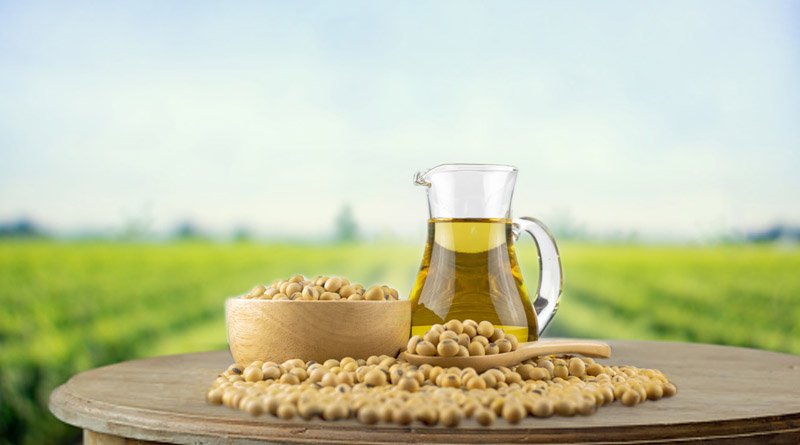Soybean is a good source of protein as it contains all the essential amino acids that poultry require for optimal growth and development.

Soybean is one of the most important sources of protein and minerals for poultry feed. It is a legume that is rich in nutrients such as protein, essential amino acids, and minerals, which are vital for the growth and development of poultry.
The importance of soybean in poultry feed cannot be overemphasized, as it is an excellent source of high-quality protein and minerals that are essential for maintaining the health and productivity of poultry.
Protein is a vital nutrient for poultry as it plays a critical role in building and repairing body tissues, as well as in the synthesis of enzymes, hormones, and antibodies.
Soybean is a good source of protein as it contains all the essential amino acids that poultry require for optimal growth and development. In fact, soybeans are considered a complete protein source for poultry, as they contain all the essential amino acids in the right proportions.
Apart from protein, soybeans are also rich in minerals such as calcium, phosphorus, magnesium, and potassium. These minerals are essential for maintaining the health and productivity of poultry. Calcium, for instance, is important for the formation of strong bones and eggshells, while phosphorus is necessary for energy metabolism and the formation of DNA and RNA.
Magnesium is required for enzyme function and plays a crucial role in the immune system, while potassium is important for maintaining fluid balance in the body.
Furthermore, soybeans are also a good source of antioxidants such as tocopherols and isoflavones, which help protect poultry from oxidative stress and improve their immune function. These antioxidants also help to reduce the risk of various diseases and disorders in poultry, which can negatively impact their health and productivity.
However, there are also concerns about the potential negative effects of soy on poultry health. Soybean contains anti-nutritional factors such as trypsin inhibitors, lectins, and phytic acid, which can interfere with nutrient digestion and absorption in poultry. This can lead to reduced growth performance, poor feed efficiency, and increased susceptibility to diseases.
Furthermore, some studies have suggested that soybeans may have estrogenic effects in poultry, which can lead to reproductive and developmental problems. However, other studies have failed to find evidence of significant estrogenic effects in poultry fed soybean-based diets.
Overall, the impact of soybean on poultry health is complex and multifaceted. While soybeans can provide significant nutritional benefits to poultry, there are also potential risks associated with their use. It is important for poultry producers and nutritionists to carefully evaluate the use of soybean in poultry diets and consider the specific needs and health concerns of their birds.
Protein is also a crucial nutrient for animals, and soybeans are an excellent source of high-quality protein. It contains all the essential amino acids that are required for animal growth and development.
In fact, soybean meal is one of the most commonly used protein supplements in livestock feed, particularly in poultry and swine diets. Soybean meal is also a valuable source of energy, with a high concentration of digestible carbohydrates that can be easily utilized by animals.
Another key benefit of soybean in livestock feed is its high content of essential fatty acids, particularly linoleic acid. These fatty acids play a critical role in maintaining animal health and productivity, as they are involved in numerous physiological processes such as immune function, reproductive performance, and growth.
In addition, soybeans contain other important nutrients such as vitamins, minerals, and antioxidants that can help to support overall animal health and well-being.
Furthermore, soybean is a sustainable and cost-effective ingredient for livestock feed. It is widely available and can be sourced locally, reducing transportation costs and environmental impact. Soybean meal is also relatively affordable compared to other protein sources, making it an attractive option for farmers and feed manufacturers.
The benefits of soybean in livestock feed are not limited to animal health and productivity. They also have important implications for human health and food security.
Livestock production plays a critical role in meeting the growing demand for animal protein worldwide, and soybeans are an important component of sustainable and efficient animal agriculture.
Moreover, the use of soybean in livestock feed can help reduce the pressure on other protein sources such as fishmeal and meat and bone meal, which are associated with environmental and ethical concerns.
In conclusion, soybeans are a valuable protein source for poultry diets and can provide numerous nutritional benefits. However, its impact on poultry health is not yet fully understood, and there are potential risks associated with its use.
Careful consideration and monitoring are necessary to ensure that soybean is used in a safe and effective manner for poultry. But soybean is a rich source of minerals and antioxidants that are crucial for maintaining the health and productivity of poultry.
Soybean is also a valuable ingredient in livestock feed, providing essential nutrients such as protein, energy, and fatty acids that are critical for animal health and productivity.
Its sustainability, affordability, and nutritional value make it an attractive option for farmers and feed manufacturers, while also contributing to human health and food security.